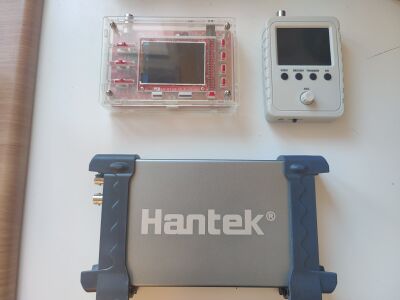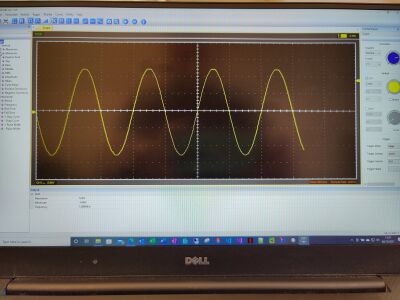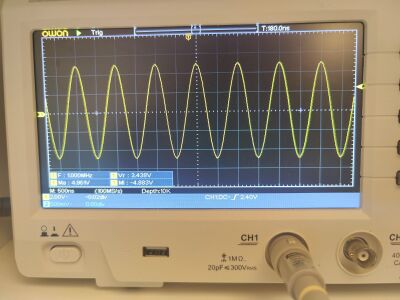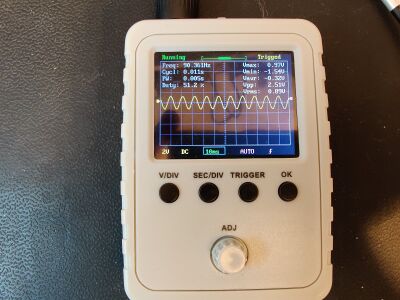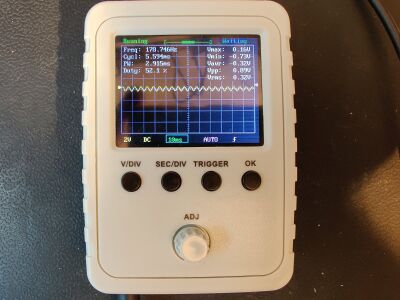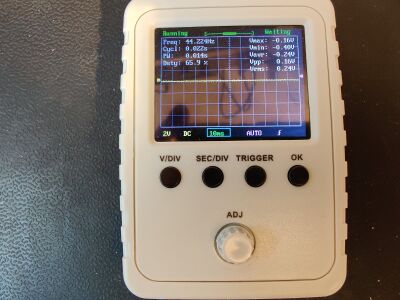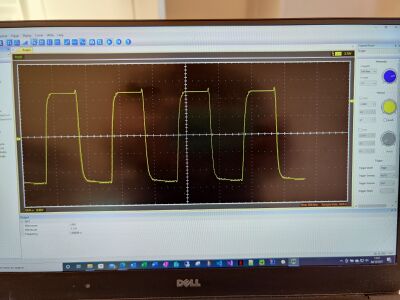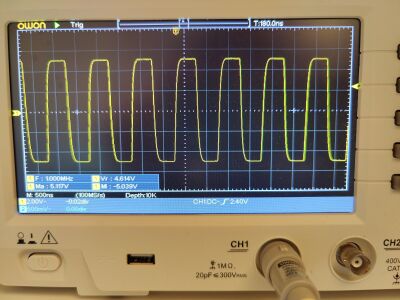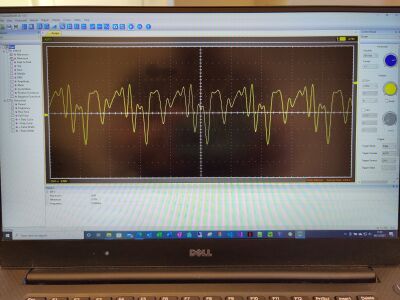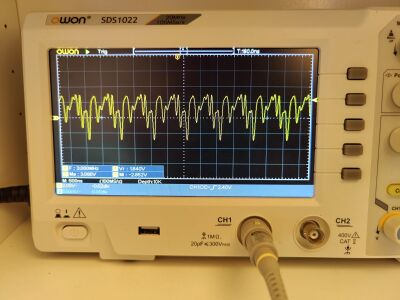Basic Troubleshooting - Oscilloscope comparison
Like with multimeters, I'm often asked should I buy an oscilloscope? The answer is for me quite simple, you don't buy an oscilloscope, you [i]invest[/i] in an oscilloscope.
The reason for this is simple, they are not generally cheap, and you need to decide if the amount of use you'll get from it is worth the cost over the number of years you'll use it for.
If you have a single machine you want to fix, and then won't use it again, then it's an expensive proposition. If you will use it regularly over many years for many repairs, then it is definitely worth it.
However, if you only need it once, surely a cheap £30 device from eBay will get you through your troubleshooting with little outlay. In actuality, this isn't the case, because even basic measurements fail and as with the multimeter, can lead you astray.
I have 4 scopes on test here to demonstrate this problem:
There is a Hantek PC based device at about £50-£60, a 2 channel device which connects via USB and uses the PC for all processing, an eBay £29.99 special (The little grey device) and another eBay special at the low low price of £15.99 (The red device) that came as a kit.
The £15.99 item I immediately discounted, because it lacks any real useful features, though as an SMD soldering project, it is actually rather fun to do, provided you don't expect to use it for any actual useful measurements later on.
Scope number 4 is my trusty Owon:
The Owon came in at about £150, and is a 2 channel device like the Hantek. Both the Hantek and Owon have a maximum frequency they can measure of 20Mhz.
The tests carried out here were simple. Starting at 1Mhz with a sine wave with a 10v amplitude, I looked at the on screen representation and what the actual measurement of the frequency was.
I then adjusted the frequency up to see when it ceased to register on the eBay device. These were deliberately simple tests, because if the eBay special was unable to deal with something simple, then running more complex tests would be a waste of time.
The Owon and Hantek passed no problems:
However immediately there is a problem with the eBay special:
Whilst the representation of the sine wave was 'OK', the frequency measurement didn't show in Mhz, instead reading 90Hz, so out massively and not useful for diagnostics.
Also, with a 10V amplitude, it simply ceased to measure the voltage correctly. At 2Mhz, all the measurements got much worse:
Winding the frequency up to 5Mhz, the eBay special lost any representation at all and flatlined:
I then moved back to 1Mhz and switched over to a square wave and then a random wave, which both the Hantek and Owon were more than happy with:
Square:
Hantek
Owon
Random:
Hantek
Owon
In the case of the eBay special, it was completely incapable of showing these other waveforms. Further pushing the Hantek & Owon, I further pushed the frequency up to their limit of 20Mhz and had no problems, though both required a little tweaking of the settings to measure properly, and the Owon did even manage up to 23Mhz.
So what is the real message here?
Well, the eBay £29.99 special is just no good, and in fact, having also tested it as just a multimeter with my bench PSU, found it wanting in that role as well, reading 5v low by .25v, though the margin of error improved as I went to 9v then 12v, with the last test being quite close.
The simple fact of the matter is that even with something as simple as say a VIC20 which has a clock speed of just over 1Mhz, the eBay special can't even be used usefully for troubleshooting as it just can't read frequencies that high.
As for the Hantek and Owon, they offer broadly similar capabilities, and if you are desperate for an oscilloscope on a limited budget, the Hantek comes in at half the price of the Owon.
So why pay double for the dedicated Owon device?
There's several reasons for that:
Having dedicated hardware and controls, driving the functions of the Owon is at your fingertips and very easy with instant response. The Hantek GUI under Windows is just not fun to use, even with a touchscreen device.
- The Hantek needs a PC or laptop, which consumes a lot of bench space. The Owon is small and takes up very little space on the workbench.
- The Hantek display via PC is just not great and suffers from redraw latency compared to the fast sharp display of the Owon.
So, in summary, my advice would be set that £29.99 you were going to spend on that eBay special to one side, and put it towards a proper device that can do the measurements you need.
Personally, I used the Hantek for a while, and it is OK for a lot of retro stuff, my major struggle was with the poor GUI of the Windows software and the laggy scope display.
Whatever you decide to buy, and the Hantek will serve a purpose if your budget is limited and you can manage with the poor GUI and extra PC to drive it, just be sure to read the specs and make sure it will do what you need it to do.
Winners/losers are:
Owon dual channel scope, Model SDS1022.
- Hantek 6022BE.
- eBay Special. Really don't buy one you will regret it!
- eBay Special IKEA edition. Buy it for the build experience, it's little more than a toy.
This is obviously just advice from my perspective, since I own all 4 devices, but in reality it is down to you all to decide how much to spend and what spec you need for your own purposes.
Just be aware that sometimes buying cheap tools is a false economy and can cause you more trouble in the long run.
